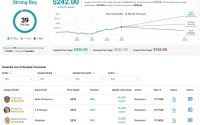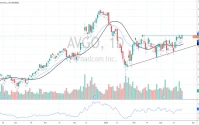Siemens Healthineers has laid out its strategy for the next few years, and it's… bold. The company is aiming for 6-9% annual revenue growth from its combined Imaging and Precision Therapy segments through 2030, while Diagnostics will be set adrift to pursue its own path. The plan hinges on healthcare AI, which they see as an "accelerator." It's a high-stakes gamble, especially given the current market dynamics.
The AI Hype Train vs. Reality
Siemens Healthineers is betting big on AI to drive efficiency and personalization in healthcare. They're not alone; every company from Google to your local urgent care is slapping "AI" on everything they can. But let's be real: the actual impact of AI in healthcare is still largely theoretical. We're seeing pockets of genuine progress in image analysis and drug discovery, but widespread, transformative change? Not yet.
The company’s focus on non-communicable diseases – stroke, cancer, cardiovascular diseases, and neurodegenerative diseases – makes sense, given the aging global population. But AI solutions in these areas are complex and require massive datasets, robust validation, and, crucially, physician trust. Will doctors readily cede diagnostic authority to algorithms? What happens when the AI is wrong? These are open questions.
And this is the part of the report that I find genuinely puzzling. Siemens Healthineers expects Diagnostics to “improve towards mid-single-digit growth” after being essentially spun off. But isn’t accurate, timely diagnostics essential for effective treatment of those very non-communicable diseases they’re targeting with AI-powered imaging and precision therapy? It feels like amputating a perfectly good leg to improve the performance of the other. Are you a robot?
Precision Therapy: A Consolidation Play
The creation of the "Precision Therapy" segment, combining Varian, Advanced Therapies, and Ultrasound, is interesting. It looks like a consolidation play, aiming to create a one-stop-shop for treatment solutions. Varian, in particular, brings a significant oncology footprint to the table. The target of increasing its margin annually by about 100 basis points on average seems achievable (though, of course, contingent on successful integration and market conditions). The acquisition cost was substantial (reported at $16.4 billion).

Oklo Inc. (NYSE: OKLO) and Siemens Energy signed a binding contract for the design and delivery of the power conversion system for Oklo’s Aurora powerhouse. This partnership on key components combines Oklo’s expertise in advanced fission technology with Siemens Energy’s industry-leading steam turbine and generator systems to deliver clean, reliable electricity using proven industrial equipment.
The language around "Value Partnerships" and "Value Programs" also raises an eyebrow. These initiatives, designed to foster recurring revenue streams, sound suspiciously like subscription models for healthcare providers. While predictable revenue is great for Siemens Healthineers, will hospitals be willing to commit to long-term contracts in a rapidly evolving technological landscape? And are these programs truly delivering value, or are they just another way to lock customers into expensive, inflexible solutions? What are the cancellation terms?
The Financial Tightrope Walk
Siemens Healthineers is projecting double-digit percentage growth in adjusted earnings per share annually, alongside a sustainable cash conversion rate of 0.8 to 0.9. They also aim to deleverage from 4.2x net debt/EBITDA to 2.5x within two years. That’s a tightrope walk. The success of this plan hinges on hitting those revenue targets, controlling costs (especially in the Precision Therapy segment post-integration), and generating robust free cash flow. Providing that a successful deleveraging and a higher free float take place, share buybacks could become possible. The company maintains its commitment to a stable to progressive dividend.
The market seems to be cautiously optimistic, but the skepticism is warranted. The company is essentially betting its future on a combination of unproven AI technologies and a complex organizational restructuring. The potential upside is significant, but so is the risk of falling short.
A Triumph of Hope Over Data?
Siemens Healthineers’ strategy is certainly ambitious. The focus on AI and precision therapy could pay off handsomely if they can execute flawlessly. But the decision to essentially cut Diagnostics loose, while simultaneously relying on AI to revolutionize disease management, feels like a contradiction. The data, in my view, doesn't quite support the level of optimism they're projecting.










